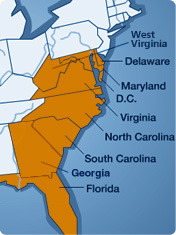Connect Directly with A Home Loan Expert
Live Chat
Click Here To Chat Live
Reverse mortgage
calculator
The U.S. Department of Housing and Urban Development (HUD) created one of the first Reverse mortgages. HUD's Reverse Mortgage is a federally-insured private loan, and it's a safe plan that can give older Americans greater financial security.
07/06, the U.S. House of Representatives passed the Expanding American Homeownership Act of 2006 (H.R. 5121), which would create a single national loan limit equal to the conforming Freddie Mac loan limit of $417,000 for 2006. President Bush urged the Senate to pass it's own version, S. 3535. The original cap was imposed so the government could monitor the program's costs and performance. This cap is no longer needed because the program generates sufficient funds to cover its' costs through the collected mortgage isurance premiums.
1. What is a reverse mortgage?
A reverse mortgage allows you, the homeowner, to be paid from the equity you have in your home. Repayment is not required as long as you maintain the property as your principal residence. This loan allows you to convert a portion of your home's equity into cash, and is usually paid in monthly payments.
If the reverse mortgage lender discovers the owner no longer lives in the house, the lender can require the loan balance be paid in full or put the house into foreclosure. Reverse mortgage lenders periodically check up on their borrowers to see if they are still alive, and are occupying their primary residence with no absences greater than 12 months.
2. Can I qualify for a HUD reverse mortgage?
To be eligible for a HUD reverse mortgage, HUD's Federal Housing Administration (FHA) has the following requirements: that the borrower is a homeowner, 62 years of age or older; owns the home outright, or has a low mortgage balance that can be paid off at the closing with proceeds from the reverse loan; and must live in the home.
The borrower is required to receive consumer information from HUD-approved counseling sources prior to obtaining the loan. You can contact the Housing Counseling Clearinghouse on 1-800-569-4287 to obtain the name and telephone number of a HUD-approved counseling agency within your area.
3. Can I apply if I didn't buy my present house with FHA mortgage insurance?
Yes. It doesn't matter if you didn't buy it with an FHA-insured mortgage. Your new HUD reverse mortgage will be a new FHA-insured mortgage loan.
4. What types of homes are eligible?
Your home must be a single family dwelling or a two-to-four unit property that you own and occupy. Townhouses, detached homes, units in condominiums and some manufactured homes are eligible. Condominiums must be FHA-approved. It is possible for individual condominiums units to qualify under the Spot Loan program.
5. What's the difference between a reverse mortgage and a bank home equity loan?
The reverse mortgage pays you, and is available regardless of your current income. The amount you can borrow depends on your age, the current interest rate, and the appraised value of your home or FHA's mortgage limits for your area, whichever is less. Generally, the more valuable your home is, the older you are, the lower the interest, the more you can borrow. As long as the house is your primary residence, the loan will not be due, and thus you don't make payments.
With a traditional second mortgage, or a home equity line of credit, you must have sufficient income versus debt ratio to qualify for the loan, and you are required to make monthly mortgage payments. Like all homeowners, you still are required to pay your real estate taxes and other conventional payments like utilities, but with an FHA-insured HUD Reverse Mortgage, you cannot be foreclosed or forced to vacate your house because you "missed your mortgage payment."
6. Can the lender take my home away if I outlive the loan?
NO. You do not need to repay the loan as long as you or one of the borrowers continues to live in the house and keeps the taxes and insurance current. You can never owe more than your home's value.
7. Will I still have an estate that I can leave to my heirs?
When you sell your home or no longer use it for your primary residence, you or your estate will repay the cash you received from the reverse mortgage, plus interest and other fees, to the lender. The remaining equity in your home, if any, belongs to you or to your heirs. None of your other assets will be affected by HUD's reverse mortgage loan.
This debt will never be passed along to the estate or heirs.
8. How much money can I get from my home?
AARP Reverse Mortgage Calculator, go to http://www.rmaarp.com
The amount you can borrow depends on your age, the current interest rate, and the appraised value of your home or FHA's mortgage limits for your area, whichever is less. Generally, the more valuable your home is, the older you are, the lower the interest, the more you can borrow.
If you currently owe any debt on your home, you must take at least that amount as a lump sum advance at closing, and use it to pay off your debt. This will reduce the amount of cash available to you in a single lump sum, creditline or monthly advance. If you do not qualify for enough cash to pay off the total debt on your home at closing, you can still get a reverse mortgage in most cases but will have to bring cash to make up the difference between the total debt and the net proceeds of your new reverse mortgage. While you will have an outlay of cash at settlement, you will no longer have any loan payments on your home.
9. Should I use an estate planning service to find a reverse mortgage?
HUD does NOT recommend using an estate planning service, or any service that charges a fee just for referring a borrower to a lender! Call 1-800-569-4287, toll-free, for the name and location of a HUD-approved housing counseling agency near you.
10. How do I receive my payments?
You have five options:
- Tenure- equal monthly payments as long as at least one borrower lives and continues to occupy the property as a principal residence.
- Term- equal monthly payments for a fixed period of months selected.
- Line of Credit- unscheduled payments or in installments, at times and in amounts of borrower's choosing until the line of credit is exhausted.
- Modified Tenure- combination of line of credit with monthly payments for as long as the borrower remains in the home.
- Modified Term- combination of line of credit with monthly payments for a fixed period of months selected by the borrower.
Also check out HUD's website (www.hud.gov), or call AARP at: 1-800-209-8085 for more information about reverse mortgages.
back to the top
Choice Finance® will be happy to help you with your reverse mortgage. This type of mortgage can help you with your estate planning and wealth management, payoff existing liens, and provide you additional tax-free* income available as a monthly payment, lump sum, and/or line of credit.
You will retain full ownership of your home and no monthly payments will be required until the last borrower passes away or no longer occupies the property as his/her primary residence. If the loan is repaid, you will keep all remaining equity and you will never owe more than the appraised value of the home as determined by an approved appraiser. *Make sure you consult your tax professional to fully advise you.
How your loan amount will be determined:
- your age
- your home's location
- home value or regional limit
- current interest rates
Choice Finance® has trained reverse mortgage Loan Officers with analyzer software ready to help. If you'd like to take the first step to discuss your situation, please click "Apply Now" above or this quick form. We will review your information and contact you shortly.



 By Email
By Email By Phone
By Phone